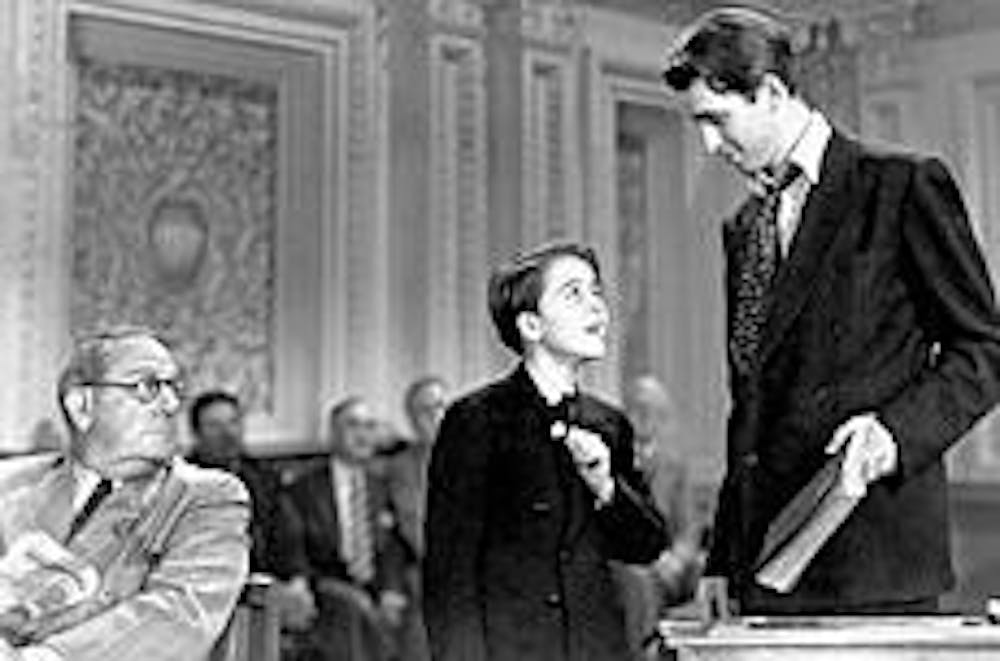It's easy to give up a marathon when people are trying to break your legs. Peace seems impossible, stardom unattainable, and ideals hard-won. However, imagine the mere sound of your voice and the weight of your reason are powerful enough to inspire people and give them hope Jeffery Smith, the hero of "Mr. Smith Goes to Washington," can show you just how that feels.
Idealistic director Frank Capra wanted to reveal corruption in his films and laud those who worked against it. In 1939's "Mr. Smith," the dishonest and apathetic are contained in the close-knit community of Capitol Hill. Mr. Smith (James Stewart), a recently appointed senator and newcomer to the world of politics, is baby-powder pure in his motivations and perception of others.
However, he has the armor of hard work, persistence and a smitten secretary devoted to his cause. His goal upon joining the Senate is to pass a bill to create a national boys' camp where youngsters can go for the summer to discover nature, fun and values.
Threatened by Mr. Smith's popularity and dignity, fellow senators and political onlookers spite his endeavors. Anonymous antagonists frame him by telling the public that Mr. Smith is creating the camp to use the money for his own profit. His enemies wear him down to almost nothing. But sitting by the Lincoln memorial, Mr. Smith rediscovers the source of his ambition and voraciously returns to the Senate with his agenda.
Using plain old facts to prove himself, it's Mr. Smith who wears his colleagues out with his logic and love. He does not keep silent and does not use angry means. Rather, he keeps a steady medium. Through this, onlookers learn a phenomenal paradox - that the most tranquil person can shake a soul.
While the political pandemonium bubbles in the District, American audiences are clueless to the information they receive. Those who frame Mr. Smith also control the information given to the newspapers. Inevitably, the public is fed lies.
Due to the misconception of Smith, people riot violently against him. There is even a shot of a bus of young boys toppled over because the boys supported Mr. Smith. They do not know that they protest a false cause. The film helps one understand just how easily information can be manipulated.
Why You Should Watch This Film:
Frank Capra was famous for speaking against flaws in society and people. This movie is the flag to his career, showing how the virtuous person can be victorious.
Upon its release, the film was considered anti-American and pro-Communist. In fact, in countries such as fascist Italy, Germany and German-occupied France, the movie was banned. It's been reported that before the ban took place in France, one theater in Paris played the film non-stop for 30 days. Receiving eleven Oscar nominations, "Mr. Smith" acted as an inspiration both at home and abroad.





